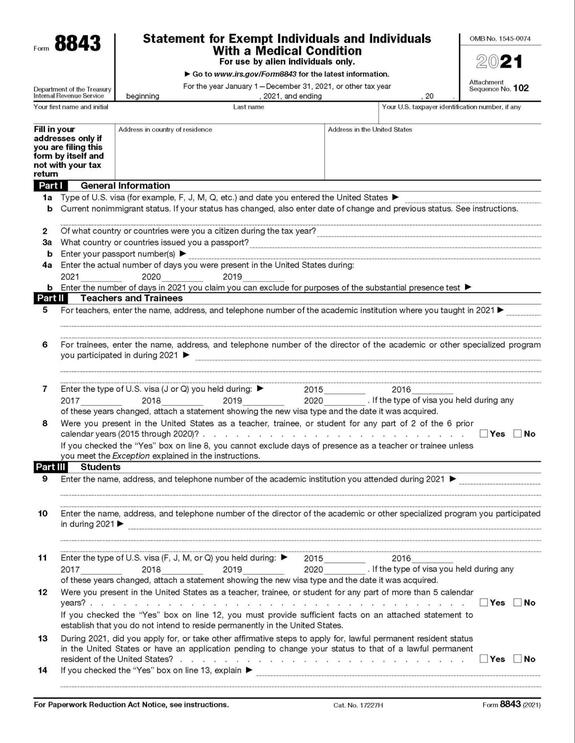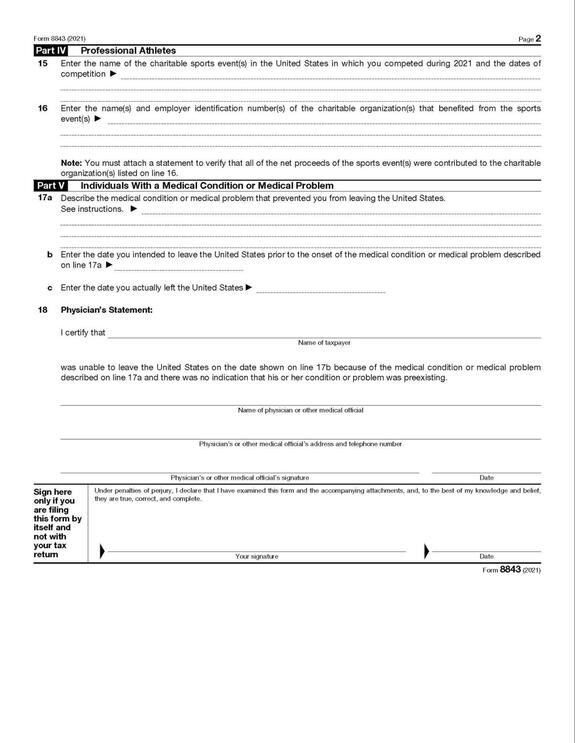F-1 International Student Tax Return 101

Getting used to a new country is not easy. However, you should not only enjoy the cultural part but you’ll also have to handle the legal side of it. Understanding and paying American taxes is one of the ways of adaptation for nonimmigrant aliens. F1 student tax returns might seem tricky, but here we are, ready to explain every little detail.
F-1 Visa: What is it?
A person from a foreign country who wants to attend an American academic institution (university, college, highschool, private elementary school, seminary, conservatory, language training program, etc) has to get a non-immigrant student visa — F-1 visa.
To make understanding visa types for international nonimmigrant students and exchange visitors in the United States a bit easier, please see the following table.
Academic and Vocational students visa types:
-
F-1 — Academic students
-
F-2 — Spouses and children of F-1 visa holders
-
F-3 — Canadian or Mexican national academic commuter students
-
M-1 — Technical and vocational (nonacademic) study programs
-
M-2 — Spouses and children of M-1 visa holders
-
M-3 — Canadian or Mexican national vocational commuter students
The type of visa (F or M) depends on the course of study and the type of school you wish to attend.
Do international students pay taxes in the US?
International students as nonresident aliens are taxed on the US-sourced income only. They should file tax returns if they were present in the United States during the previous calendar year and earned income.
Do international students file tax returns in the US?
The short answer is no, not every international student has to file a tax return. Among those who have to file, not every student has to pay taxes to the American government.
Nonresident aliens who came to the United States as students have to file in case they have:
- A taxable scholarship or fellowship grant;
- Income partially or totally exempt from tax under the terms of a tax treaty;
- Any other taxable income under the Internal Revenue Code.
Filing won’t be required from nonresident alien students who have the only source of income such as:
- Foreign sources of income;
- Interest Income from a:
- U.S. bank
- U.S. savings & loan institution
- U.S. credit union
- U.S. insurance company
- Portfolio Interest
- An entirely Tax Free Scholarship or Fellowship Grant;
-
An investment that generates Portfolio Interest which is not connected with a U.S. trade or business subject to certain rules.
Remember, income that is not taxable because of an income tax treaty must be reported on a U.S. income tax return anyway
Tax filing for F-1 Students
Do F-1 international students have to file tax returns?
Nonresident aliens with F1 visas have to file tax returns on the US-sourced income during the calendar year. To do that, international students should file Form 1040NR (U.S. Nonresident Alien Income Tax Return).
There’s also Form 1040, only the US residents file this one.
Do international students with no income still have to file a tax return? Yes, no matter if you did or didn’t earn money during your presence in the United States, you have to file Form 8843 anyway.
What else do F-1 students need to file a tax return? They’ll need an SSN (Social Security Number) or ITIN (Individual Taxpayer Identification Number).
Do F-1 international students have to pay taxes on OPT?
OPT (Optional Practical Training) allows foreign students with an F-1 visa to work in the United States for 12 months.
International students with F-1 visas have to pay taxes if they earn income from an OPT.
They also have to fill in the W-4 Form, known as Employee’s Withholding Certificate. This way an employer can withhold the correct federal income tax from the pay. It’s important to understand the definition of a W-4 because it is the IRS document that they complete for their employer to determine how much should be withheld from their paycheck for federal income taxes. In fact, accurately completing their W-4 and getting all questions answered can help them avoid overpaying their taxes throughout the year or owing a large balance at tax time.This way an employer can withhold the correct federal income tax from the pay.
Do F-1 international students have to pay taxes on СPT?
CPT (Curricular Practical Training) gives international students an opportunity to work in paid internship positions. This option is only available for F-1 non-resident alien students.
International F-1 visa holders on CPT must file Form 1040-NR as they are nonresident aliens engaged in a trade or business in the United States.
Standard Deduction: Can F-1 students claim it?
Most of the nonresidents can not use Standard Deduction.
The only exception was made for Indian nonresident aliens. To learn more about it, check Article 21(2) of the United States – India Income Tax Treaty.
Tax refunds for F-1 students
F1 visa resident aliens can count on tax refunds from the US — do that by filing your tax return. To claim a tax refund on your scholarship, first, make sure that it is covered by a tax treaty.
A tax treaty allows residents of 68 foreign countries to be eligible to be taxed on reduced rates or exempt from the United States.
Form 8843
What is Form 8843?
Form 8843 “Statement for Exempt Individuals and Individuals With a Medical Condition” is the statement that you as a nonresident alien file in order to explain the basis of your claim that you can exclude days present in the United States for purposes of the substantial presence test.
Form 8843 is not an income tax return. Instead, it is a statement you file for the US Government if you are a certain type of nonresident alien for tax purposes.
Who must file Form 8843?
All F-1, F-2, J-1, J-2 non-resident aliens must file Form 8843. It doesn’t matter if you didn’t earn any income, you must still file this form.
You must file a Form 8843 if:
- You were present in the US in the previous tax year;
- You are a nonresident alien;
- And you are in the US under F-1, J-1, F-2 or J-2 status.
Remember, even if you don’t need to file an income tax return, you should file the Form 8843 if the above criteria apply.
How to fill Form 8843?
Apart from providing your personal information (Name, Address and Social Security Number or Individual Tax Identification Number), this form is divided into 5 parts and all of them are not relevant to fill. It depends on your personal circumstances.
Part 1 - General Information
In part 1 of your Form 8843 you will need to include the following information:
- Your US visa type (F-1, J-1, etc)
- Your current non-immigrant status
- The number of days you were present in the US in the last 3 years
- The number of days you were present in the US in the relevant tax year
Part 2 – Teachers and Trainees
In part 2, teachers and trainees are required to include details of what academic institution or programme you were involved in during the previous year.
Part 3 – Students
If you are an F-1 or J-1 visa holders (and dependents) should, in part 3:
- Include details of your academic institution or programme
- and answer the rest of the questions according to your personal circumstances
Part 4 (Professional Athletes) and 5 (Individuals with a Medical Condition or Medical Problem)
The majority of students in the US on F or J non-immigrant status will not need to fill in parts 4 and 5.
Is there a deadline for filing Form 8843?
Usually, the deadline for filing Form 8843 is June 15. In case you’re also filing a tax return, you should attach Form 8843 to it and file them by April 15.
Tax filing for M-1 students
M-1 student visa: What is it?
The M-1 visa (Vocational Student) is for students in technical, vocational, or other nonacademic programs, other than language training. M-1 visa holders are not allowed to work during the studying process. To get this visa, they should provide evidence of the availability of funds to be able to pay for all the costs. M-1 students may engage in practical training only after they have completed their studies.
Are there any M-1 student tax forms?
As M-1 students are not allowed to work and accept employment (except during practical training), they are NOT required to file income tax unless in rare situations where they're paid for the practical training. So, in most cases, they are not supposed to file the US income tax returns.





